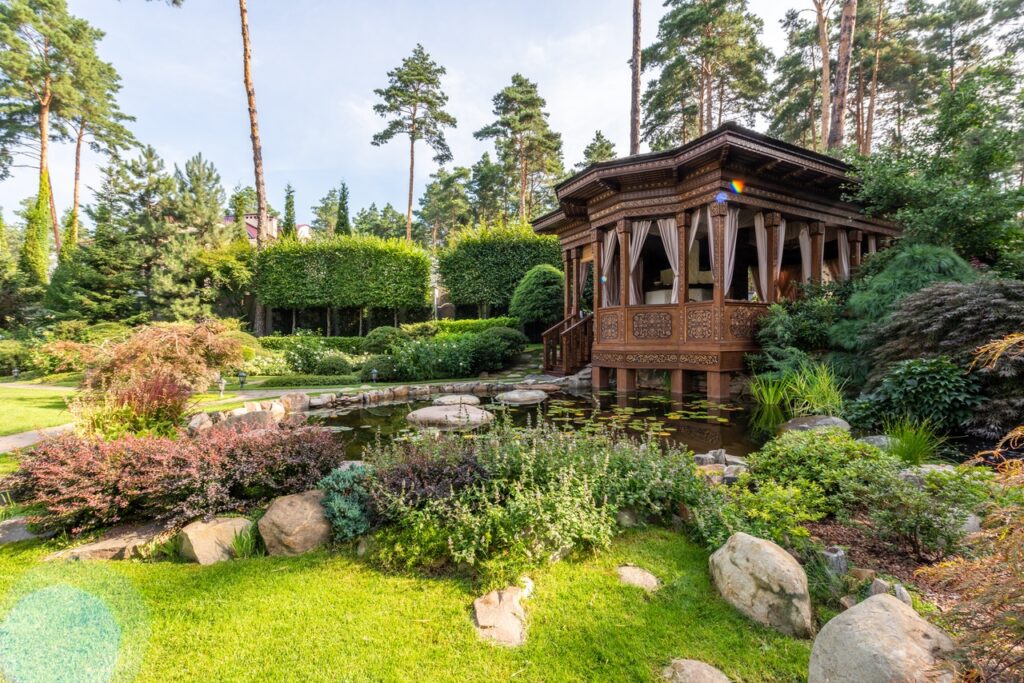As we strive to make our living spaces more sustainable, the garden is a great place to start. With a bit of creativity and a commitment to eco-friendly practices, you can transform your outdoor area into a thriving eco-haven.

It doesn’t matter if you have a lawn that sprawls over half an acre, or a modest balcony with a jumbled assortment of plant pots and containers – there are plenty of ways to incorporate sustainability into your green space!
Choosing the Perfect Plants
Selecting the right plants is vital for crafting an environmentally friendly garden. Opting for native species is a wise decision as they are well-adapted to the local climate and soil conditions, needing less water and fewer pesticides. This simplifies your garden maintenance and aids local wildlife, offering a sanctuary for birds, bees, and butterflies, which are crucial for pollination and maintaining biodiversity.
Incorporating native plants also means your garden will be more resilient to local pests and diseases, reducing the need for chemical interventions. For example, a native oak tree can support hundreds of different species of insects, providing food for birds and creating a mini-ecosystem within your garden.
Use Sustainable Materials
When it comes to garden design and construction, the materials you choose can have a big impact. For decking, fences, and furniture, opt for sustainably sourced wood or recycled materials. Bamboo, for instance, is a highly sustainable option due to its fast growth rate and minimal need for pesticides.
Aluminium pergolas are another excellent choice. Durable and recyclable, they provide a stylish shelter that lasts for years without the need for frequent replacement or repair. Their long lifespan and minimal maintenance make them an environmentally sound option for any garden.
Keen to add one to your outside space? You will easily find your perfect aluminium pergola with Woodlark Garden Luxury.
Water Wisely
Water conservation is a critical aspect of sustainable gardening. One straightforward method to lessen dependency on tap water is by installing a rain barrel. Collecting rainwater from your roof to water your garden not only lowers your water bill but also conserves a precious resource. This stored water can be particularly valuable during dry spells, reducing the stress on municipal water systems.
Drip irrigation is another efficient way to water your plants. It delivers water directly to the base of the plant, minimising evaporation, and runoff. This targeted watering method is far more efficient than using traditional sprinklers or hand watering, which can lead to significant water loss.
Opt for Natural Pest Control
The use of chemical pesticides can harm the environment and even pose a risk to your family and pets. Thankfully, there are numerous natural alternatives that can help manage pests effectively. Introducing beneficial insects like ladybugs, lacewings, and hoverflies can naturally control pest populations such as aphids and scale insects. These insects are natural predators and can help maintain a healthy balance in your garden.
Moreover, certain plants like lavender, marigolds, and chrysanthemums can serve as natural pest deterrents. Their strong scents repel many garden pests and can keep your plants healthy without the need for chemicals. Planting these as border plants around your garden not only adds beauty but also fortifies your garden’s defences against unwanted pests.
Companion planting is another strategic approach that enhances your garden’s natural resilience to pests. This method involves placing plants together that mutually benefit one another, such as planting garlic near roses to help repel pests.
Compost Your Waste
Composting is a fantastic way to reduce kitchen and garden waste while enriching your soil. By turning food scraps and plant debris into compost, you’re not only cutting down on waste but also creating a rich, organic fertiliser for your plants. This improves soil health, boosts plant growth, and can even help store carbon in the soil, combating climate change.
Setting up a compost bin is simple and can be done in even the smallest of spaces. Over time, this little eco-friendly act can make a significant difference in the quality of your garden and the amount of waste you produce.
Create a Habitat
Your garden can be more than just a beautiful space; it can also be a refuge for local wildlife. Installing a bird bath, a bug hotel, or nesting boxes can attract various species and help boost biodiversity. Letting some parts of your lawn grow wild can also create a natural habitat for insects and small animals, contributing to ecological health in your area.
Gardens are not just spaces for human enjoyment; they are potential mini-ecosystems that can play a vital role in our planet’s health. By choosing to adopt sustainable practices in your garden, you’re not only enhancing your own living space but also contributing to broader environmental goals.
In Brief
These steps towards a more sustainable garden are simple yet impactful. They show that small changes in how we manage our outdoor spaces can lead to significant environmental benefits. Let’s all do our part and turn our gardens into thriving examples of sustainability.

